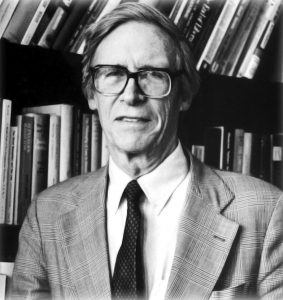Ed Quish in Jacobin:
 John Rawls was one of the twentieth century’s preeminent liberal philosophers. His major work, A Theory of Justice (1971), redefined the field of political philosophy, shaping generations of subsequent scholarship on politics, ethics, and law. For many of his admirers, Rawls represents the best of the liberal tradition, and his theory of justice offers a rigorous defense of liberalism’s most humane hope: a democratic welfare state that preserves capitalism while also keeping it in check.
John Rawls was one of the twentieth century’s preeminent liberal philosophers. His major work, A Theory of Justice (1971), redefined the field of political philosophy, shaping generations of subsequent scholarship on politics, ethics, and law. For many of his admirers, Rawls represents the best of the liberal tradition, and his theory of justice offers a rigorous defense of liberalism’s most humane hope: a democratic welfare state that preserves capitalism while also keeping it in check.
For critics on the Left, Rawls’s theory has often seemed insufficient for a critique of injustice. The just society derived from Rawls’s famous thought experiment — where rational parties in an “original position” design a social contract unaware of their ultimate place in the society they create — largely mirrors the United States’ basic social, political, and legal institutions. Rawls’s basic theoretical approach risked buttressing the existing order by making it seem like the inevitable product of consensual reasoning — obscuring rather than clarifying political possibility.
In John Rawls: Reticent Socialist, William A. Edmundson offers a left defense of Rawls by focusing on the philosopher’s most mature and radical writings. By the time of Rawls’s final work, released in 2001 and called Justice as Fairness: A Restatement, he had concluded that capitalism is incompatible with the political equality and fair opportunity that justice demands.
More here.
